- Sport + Travel Magazine


What is sports tourism?
According to a market report by Allied Market Research , the global sports tourism industry was pegged at $323.42bn in 2020. However, it is expected to reach $1.8 trillion by 2030, growing at a compound annual growth rate (CAGR) of 16.1% from 2021 to 2030.
The report revealed that by region, Europe and North America held the largest share in 2020 – accounting for nearly two-fifths of the market, due to the presence of a large population and high participation in sports activities. However, the global sports tourism market across Asia-Pacific is projected to register the highest CAGR of 17.7% during the forecast period of 2021 to 2030, owing to increase in sports participation and sports event hosting.
Subscribe to our monthly newsletter
Sports tourism: a fast-growing niche
The sport and travel industries go hand-in-hand. Whether it is fans attending a match or an event, or if it is teams and officials travelling to fixtures or competitions, sports tourism is now a major niche in the travel industry.
It’s not just Fifa World Cups, the Olympics or major events that are driving the sector, but also team travel, school sports and smaller competitions.
Did you know that the global sports industry is estimated to be worth between US$480bn and US$620bn, according to research by A.T. Kearney . Globally, travel and tourism’s direct contribution to GDP was approximately US$4.7trillion in 2020, according to a report by Statista .
UN Tourism describes sports tourism as “one of the fastest growing sectors” in the travel industry. It also states that international sports tourism is worth US$800bn and accounts for 10% of the world’s tourism industry.
Here we look at what sports tourism is and an expert’s view on its impact…
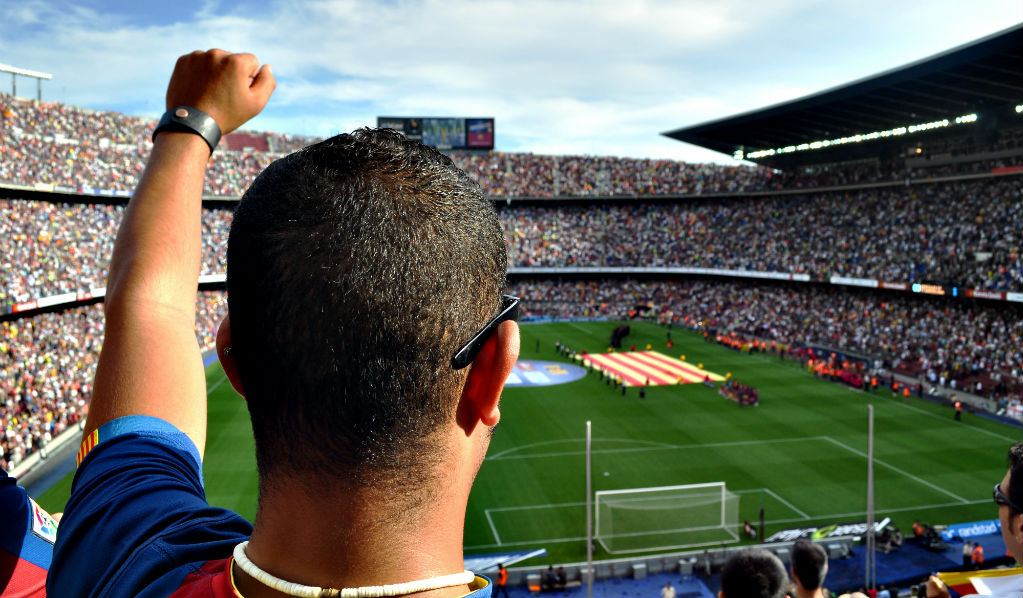
The United Nations’s definition
What UN Tourism said about sports tourism:
“ Sports tourism is a fundamental axis, generating around 10% of the world’s expenditure on tourism. It has an estimated growth rate of 17.5% between 2023-2030, moving masses intra and intercontinentally. Sports tourism can promote social, economic and environmental action, it accelerates development and can leave a long-lasting positive legacy.
“ Sports and Tourism are interrelated and complementary. Today, sports tourism is one of the fastest-growing sectors in tourism. More and more tourists are interested in sport activities during their trips whether sports are the main objective of travel or not. Sport events of various kinds and sizes attract tourists as participants or spectators and destinations try to add local flavours to them to distinguish themselves and provide authentic local experiences. Mega sport events such as the Olympics and World Cups can be a catalyst for tourism development if successfully leveraged in terms of destination branding, infrastructure development and other economic and social benefits.”
Impact of sports tourism
Akis Tsolis, CEO of Active Media Group , organisers of the Navarino Challenge and Santorini Experience in Greece, wrote on gtp.gr :
“Aside from the obvious and vast benefits of travel, sports tourism is great for the economy for one simple reason: it generates economic impact through direct spending into a community. Sports tourism is a rapidly growing niche in the travel/tourism industry. In fact, we at ActiveMedia Group share the belief that it is the fastest growing segment within the travel industry today, generating billions of dollars every year. Sports tourism is a trend that’s not going away and is expected to continue growing.”
The ChatGPT answer to this question…
What is the definition of sports tourism, how does it benefit the economy and what can we expect in the future.
Sports tourism refers to the act of traveling to a destination with the purpose of participating in or watching a sporting event. It involves a wide range of activities, including attending professional sports games, participating in amateur sports tournaments, and visiting sports-related attractions such as museums or stadiums.
Sports tourism can benefit the economy in several ways. Firstly, it generates revenue for local businesses such as hotels, restaurants, and retail stores. Secondly, it creates employment opportunities in the tourism and hospitality industries. Thirdly, it attracts investment in sports infrastructure such as stadiums and training facilities, which can benefit the local community beyond the tourism industry. Additionally, sports tourism can help to promote a destination as a sports hub, which can attract further sporting events and opportunities.
In the future, we can expect sports tourism to continue to grow, driven by the increasing popularity of sports and the ease of travel. Technological advancements such as virtual reality may also create new opportunities for sports tourism, allowing fans to experience sporting events remotely. Additionally, as sustainability becomes an increasingly important factor in tourism, sports tourism may shift towards more eco-friendly practices, such as promoting sustainable transportation and reducing waste.
SPORTS EVENTS CALENDAR
Nashville rock ‘n’ roll running series 2024, 2024 iagto european convention, malaga, 2024 finkstonball baseball and softball festival, austria, tennis grand slam: 2024 french open roland garros, rugby union: 2024 epcr heineken champions cup and challenge cup finals , privacy overview.
How does sport contribute to tourism?

Tourism is one of the world’s most important economic sectors. It allows people to experience the world’s different cultural and natural riches and brings people closer to each other, highlighting our common humanity.
The many important contributions of tourism encouraged the UN World Tourism Organization ( UNWTO ) to institute World Tourism Day, celebrated annually since 1980 on 27 September, to highlight the importance of tourism and its impact on our society.
Tourism and sports
According to UNWTO , tourism is one of the largest and fastest growing economic sectors in the world, while sport is one of the world’s largest social phenomenon. As a professional or leisure activity, sport often involves travel to other places, to play and compete in various destinations. Further, major sporting events, such as the Olympics and various World Cups, have become powerful tourist attractions.
Sports tourism constitutes a large part of the tourism industry, with some sources claiming that a quarter of all tourism in the world is sports-related. Sports tourism includes not only participation in and attending sporting events, but also personal recreational activities.
Statements from the World Tourism Organisation and the International Olympic Committee (IOC) have highlighted the importance of sports tourism; in 2004, the organisations committed to reinforcing their partnership and collaboration in the sports tourism domain, stating :
“Tourism and sport are interrelated and complementary… both are powerful forces for development, stimulating investment in infrastructure projects such as airports, roads, stadiums, sporting complexes and restaurants- projects that can be enjoyed by the local population as well as tourists who come to use them.”
Sports tourism and sustainable development
Tourism is an essential pillar of the 2030 Agenda for Sustainable Development and the Sustainable Development Goals (SDGs), especially goals 8 , 12 , and 14 . As a segment of tourism, sports tourism can also help achieve sustainable development .
At an economic level, sports tourism contributes to SDGs 1 (end poverty in all its forms everywhere) and 8 (promote sustained, inclusive and sustainable economic growth, full and productive employment, and decent work for all). Sports tourism promotes local businesses, creating demand in areas such as transportation, hotels and restaurants. Thus, local populations can avail jobs and income opportunities. Depending on the nature of the sports and experiences, local people can work as instructors and guides, who are likely to be paid more due to their special skills.
Further, sports tourism contributes to SDG 3 (ensure healthy lives and promote well-being for all at all ages). Besides providing the tourists with sporting opportunities and an outlet for physical exercise, investment in sports tourism can also promote the participation of local populations in sporting activities.
Finally, sports tourism can also contribute to SDG 11 (make cities and human settlements inclusive, safe, resilient and sustainable. Accessible sports tourism products like hand bikes provide access to sports opportunities for people with disabilities. Para-sport activities can be enjoyed by tourists and residents alike. The development of accessible sports tourism can improve accessibility in the destination city by the provision of not only sports products, but also accessible accommodation and transport. Furthermore, accessible sports tourism helps increase the understanding of people with disabilities in society.
Sports, tourism and sustainability
Sports federations, like the IOC, have realised the need for sustainable practices during mega sporting events. Thus, the IOC launched the International Federation (IF) Sustainability Project in 2016 to obtain an overview of their sustainability initiatives, identifying common topics, challenges and good practices. Building on the Olympic Agenda 2020, the IOC Sustainability Strategy was developed in close cooperation with many stakeholders and partners to fundamentally shape the working practices of the IOC, the Olympic Games and the Olympic Movement.
To develop synergies between the stakeholders so that sports and its facilities can be included in the local assets, it is necessary for decision-makers at all levels to understand their potential and agree to work together to set up sustainable development strategies.
Host cities should target participants who are most likely to engage in sustainable behaviour while in the destination. This includes developing event portfolios geared towards sustainable event practices. The host city should also harness collaborative partnerships to foster social cohesion and build the capacity to increase sustainable practices.
From the design and construction of sports facilities and the way resources are managed, to valuing the natural environment and health and well-being of people, all decisions should be informed by sustainability principles. As the role and relevance of sport in today’s society continue to grow, progress can only be in cooperation and partnership with others, including the tourism industry.
- Related article: Active tourism
- Related article: How can fans support sustainability in sports?

Related Articles

PSD completes the first and second batches of Level 1: Introduction to S4D

Moving People deserve organisations that treat them as their first priority

Sport for Development Coalition launches weekly drop-in webinar series

Building communities through participatory sport for development
Steering board members.

Winter is here! Check out the winter wonderlands at these 5 amazing winter destinations in Montana
- Travel Tips
What Is Sport Tourism
Published: December 12, 2023
Modified: December 28, 2023
by Donnamarie Chaudhry
- Travel Guide
Introduction
Welcome to the exciting world of sport tourism! Whether you are a sports enthusiast looking to combine your love for sports with travel, or a travel lover seeking unique experiences, sport tourism is the perfect blend of these two passions. This emerging trend in the travel industry has gained immense popularity in recent years, attracting millions of tourists worldwide.
Sport tourism refers to the act of traveling to different destinations to witness or participate in various sporting events. It offers a wonderful opportunity for individuals to explore different cultures, interact with fellow sports fans, and engage in thrilling sports activities. From cheering on your favorite team at a major sporting event to embarking on an adventure-filled skiing trip, sport tourism offers a wide range of experiences for travelers of all ages and interests.
The concept of sport tourism has evolved significantly over time. In the past, sports events predominantly attracted local spectators, but now they have become international spectacles that draw crowds from all corners of the globe. With the advancements in transportation, communication, and media coverage, sports events have transcended geographical boundaries, turning into global phenomena.
Sport tourism can be classified into different types, including spectator sport tourism, active sport tourism, and event sport tourism. Each type offers a unique experience and caters to different preferences. Whether you want to watch a thrilling football match at a renowned stadium, participate in a marathon in an exotic location, or witness a world championship in your favorite sport, there is sport tourism option for everyone.
One of the main reasons behind the popularity of sport tourism is the countless benefits it brings to both the travelers and the destinations. For travelers, it provides an opportunity to indulge in their passion for sports, create lifelong memories, and explore new destinations. On the other hand, sport tourism injects significant economic benefits into the host destinations, boosting local businesses, supporting job creation, and showcasing the cultural heritage of the region.
However, like any other industry, sport tourism also faces its own set of challenges. Sustainable management of sports events, infrastructure development, and maintaining the balance between tourism and the environment are just a few of the challenges that need to be addressed. Nevertheless, the potential and growth of sport tourism make it an exciting and promising niche in the travel industry.
In the following sections, we will explore the different types of sport tourism, delve into the benefits and challenges it presents, and highlight some of the major sport tourism destinations around the world. So, tighten your shoelaces, put on your favorite team jersey, and join us on this thrilling journey through the world of sport tourism.
Definition of Sport Tourism
Sport tourism can be defined as the intersection of sports and travel, where individuals travel to different destinations to either participate in or spectate various sporting events. It encompasses a wide array of activities, ranging from attending major sporting events like the Olympics, FIFA World Cup, or Wimbledon, to engaging in sports-related adventures such as skiing, golfing, surfing, or trekking.
At its core, sport tourism revolves around the passion for sports and the desire to explore new destinations. It provides a platform for sports enthusiasts to immerse themselves in the excitement and energy of sporting events while also experiencing the cultural, social, and natural aspects of the host location.
There are several key elements that contribute to the essence of sport tourism:
- Sports Events: Sport tourism revolves around participating in or spectating various sports events. These events can range from local tournaments to international championships, drawing participants and spectators from around the world.
- Destination: Sport tourism involves traveling to different destinations to engage in sports-related activities. These destinations can be renowned sporting cities, such as Barcelona or Rio de Janeiro, or even remote locations famous for specific sports, like Chamonix for skiing or Hawaii for surfing.
- Cultural Exchange: Sport tourism provides an opportunity for individuals to immerse themselves in different cultures and interact with fellow sports enthusiasts from diverse backgrounds. It allows for the exchange of ideas, traditions, and experiences, creating memorable and enriching encounters.
- Adventure and Recreation: Sport tourism is not limited to watching or participating in sports events but also includes engaging in adventure sports and recreational activities. This can involve adrenaline-filled adventures like bungee jumping, white-water rafting, or rock climbing, as well as more leisurely activities like golfing or fishing.
- Social Connection: Sport has a unique ability to bring people together, fostering camaraderie, and building social bonds. Sport tourism provides a platform for individuals to connect with like-minded individuals who share a common passion for sports.
Overall, sport tourism offers unforgettable experiences for both participants and spectators. It combines the excitement of sports with the allure of travel, providing a holistic and immersive experience that is sure to leave a lasting impression. Whether you are showcasing your skills on the field, cheering for your favorite team, or exploring new destinations through sports-related adventures, sport tourism is a remarkable way to combine two passions into one extraordinary journey.
Evolution of Sport Tourism
The evolution of sport tourism can be traced back to ancient times, where sports events and competitions were held as a form of entertainment and cultural expression. Ancient civilizations such as the Greeks and Romans organized athletic competitions, including the Olympic Games and the Gladiator Games, which attracted spectators from far and wide.
However, sport tourism as we know it today began to take shape in the early 20th century. With advancements in transportation and communication, sports events started to attract larger audiences, including travelers from different regions. The creation of international sporting organizations like FIFA and the International Olympic Committee further accelerated the globalization of sports and the rise of sport tourism.
The advent of mass media, particularly television and later the internet, played a vital role in the growth of sport tourism. Broadcast coverage allowed fans worldwide to witness sporting events in real-time, creating a sense of excitement and engagement. Viewers became inspired to experience the thrill of live events for themselves, leading to an increase in tourism related to sports.
In the latter part of the 20th century, sport tourism began to diversify, with a wide range of sports events and activities catering to different interests. Traditional sports such as football, basketball, and tennis continued to attract large crowds, while niche sports like surfing, extreme sports, and endurance races gained popularity among adventurous travelers seeking unique experiences.
The hosting of major global sporting events became a catalyst for the growth of sport tourism. Events like the Olympic Games, FIFA World Cup, Rugby World Cup, and Formula One races bring together athletes and fans from around the world, creating a surge in tourism and economic opportunities for the host cities and countries.
As the concept of wellness and health promotion gained traction, sports-related activities focused on well-being and fitness became an integral part of sport tourism. People now seek destinations that offer opportunities to engage in activities like yoga retreats, hiking, cycling, and golf, combining physical activity with leisure and relaxation.
Technology has also played a significant role in shaping the evolution of sport tourism. Online ticketing platforms, travel booking websites, and social media have made it easier for sports fans to plan and book their sport-related trips. These platforms provide information about upcoming events, accommodations, transport options, and even connect fans with like-minded individuals.
In recent years, there has been a growing emphasis on sustainable sport tourism. Host cities and event organizers are now focusing on minimizing environmental impact, promoting local culture and heritage, and investing in community development. This responsible approach ensures that sport tourism contributes to the long-term well-being of both the destination and its residents.
Overall, the evolution of sport tourism has transformed the way people engage with sports and travel. From ancient athletic competitions to the globalization of sports events, and the rise of adventure and wellness-focused experiences, sport tourism continues to evolve and captivate the imagination of travelers worldwide.
Types of Sport Tourism
Sport tourism encompasses a wide variety of experiences, catering to different interests and preferences. Here are the main types of sport tourism:
- Spectator Sport Tourism: This type of sport tourism involves traveling to watch and cheer on athletes participating in various sports events. It can range from attending local matches or tournaments to witnessing major international championships like the Olympics, FIFA World Cup, or Wimbledon. Spectator sport tourism allows fans to experience the electrifying atmosphere of live sports while being immersed in the culture and excitement of the host destination.
- Active Sport Tourism: Active sport tourism is for those who prefer to participate in sports-related activities themselves. It offers opportunities to engage in physical activities such as skiing, snowboarding, surfing, hiking, golfing, cycling, and more. Active sport tourism allows travelers to explore destinations while pursuing their favorite sports, embracing adventure, and enjoying the thrill of physical activity in picturesque surroundings.
- Event Sport Tourism: Event sport tourism revolves around attending specific sports events or tournaments. This can include international competitions, championships, marathons, motor races, and other sports-related events. Event sport tourism provides a chance for individuals to witness top athletes in action, experience the intensity of competition, and be part of the excitement surrounding these events.
- Health and Wellness Sport Tourism: This type of sport tourism focuses on activities that promote health, fitness, and well-being. It includes fitness retreats, yoga or meditation retreats, wellness resorts, and destinations that offer spa and wellness facilities. Health and wellness sport tourism provides a rejuvenating experience, combining physical activity with relaxation and self-care.
- Adventure Sport Tourism: Adventure sport tourism is for adrenaline junkies and thrill-seekers. It involves engaging in high-energy and extreme sports such as skydiving, bungee jumping, rock climbing, white-water rafting, and more. Travelers who enjoy adrenaline-packed experiences seek out destinations that offer adventure sports, providing an unforgettable and invigorating experience.
It’s important to note that these types of sport tourism are not mutually exclusive, and travelers may choose to engage in multiple types during a single trip. For example, attending a sporting event as a spectator and also participating in an active sport activity or exploring the health and wellness offerings in the host destination.
Each type of sport tourism offers its own unique experience, allowing travelers to fulfill their passion for sports while exploring new destinations and immersing themselves in the local culture. Whether you prefer the excitement of watching intense matches, the thrill of participating in physical activities, or the serenity of wellness-oriented experiences, there is a type of sport tourism to suit every traveler’s interests and preferences.
Benefits of Sport Tourism
Sport tourism brings a multitude of benefits, both for the travelers and the destinations, making it a compelling and rewarding experience for all involved. Here are some of the key benefits of sport tourism:
- Economic Impact: Sport tourism injects significant economic benefits into host destinations. Major sporting events attract large numbers of spectators, resulting in increased spending on accommodation, food and beverages, transportation, shopping, and local attractions. This boost in tourism expenditure stimulates local businesses, generates employment opportunities, and contributes to the overall economic growth of the host region.
- Community Development: Sport tourism has the potential to foster community development, especially in smaller or lesser-known destinations. Hosting sports events or attracting sports-related activities can revitalize local infrastructure, generate investment, and create job opportunities in sectors such as hospitality, event management, and transportation. Additionally, community involvement in sporting events can promote a sense of pride and unity among residents.
- Cultural Exchange: Sport tourism provides a platform for cultural exchange and interaction between travelers and local communities. Visitors have the opportunity to immerse themselves in the traditions, customs, and values of the host destination through sports-related experiences. This promotes cross-cultural understanding, enhances tolerance, and fosters a deeper appreciation for the diversity of the world we live in.
- Promotion of Active and Healthy Lifestyles: Engaging in sports and physical activities during sport tourism promotes an active and healthy lifestyle. Participating in sports events, adventure activities, or wellness-focused experiences encourages travelers to prioritize their physical and mental well-being. This can lead to long-term health benefits and inspire individuals to incorporate regular exercise into their everyday lives.
- Tourism Diversification: Sport tourism offers destinations an opportunity to diversify their tourism offerings. By hosting and promoting sports events or developing sports-related infrastructure, destinations can attract a different segment of travelers who may have specific interests and preferences. This diversification helps reduce reliance on conventional forms of tourism, allowing destinations to tap into a niche market and differentiate themselves from competitors.
- Promotion of Sustainability: Sustainable practices are increasingly being adopted in sport tourism. Host cities and event organizers are placing greater emphasis on minimizing environmental impact, promoting eco-friendly travel options, and supporting local communities. Sustainable sport tourism ensures that the natural and cultural heritage of a destination is preserved for future generations to enjoy.
In addition to these benefits, sport tourism also offers personal rewards for travelers. It allows sports enthusiasts to indulge in their passion, create lifelong memories, and experience the thrill of live events. It provides opportunities for personal growth, self-discovery, and a sense of accomplishment through challenge and adventure.
Whether it’s the economic boost for the host destination, the promotion of active lifestyles, the cultural exchange between travelers and locals, or the personal fulfillment of sports enthusiasts, sport tourism offers a myriad of benefits that make it an enticing and enriching experience for all involved.
Challenges in Sport Tourism
While sport tourism offers numerous benefits, it is not without its share of challenges. These challenges must be acknowledged and addressed to ensure the sustainability and success of sport tourism experiences. Here are some of the main challenges faced in sport tourism:
- Sustainable Event Management: Hosting large-scale sports events requires careful planning and sustainable management practices. This involves minimizing the environmental impact of events, ensuring efficient use of resources, and addressing waste management and pollution concerns. Event organizers must work closely with local authorities and stakeholders to implement sustainable practices and mitigate any adverse effects on the natural and cultural environment.
- Infrastructure Development: Hosting major sporting events typically requires substantial investment in infrastructure development. This includes the construction or renovation of stadiums, arenas, hotels, transportation networks, and other facilities necessary to accommodate participants and spectators. The challenge lies in balancing the need for infrastructure development with responsible and strategic planning to avoid overdevelopment or underutilization of resources after the event.
- Social Impact: The influx of tourists during sporting events can put a strain on local communities, especially in smaller destinations. Issues such as overcrowding, increased traffic congestion, noise pollution, and a sudden rise in demand for local services can negatively impact the quality of life for residents. It is crucial for destinations to carefully manage the social impact of sport tourism and ensure that the benefits are shared equitably among local communities.
- Financial Considerations: The cost of hosting major sporting events can be prohibitively high for some destinations. Initial investments in infrastructure, marketing, and event organization can be a considerable financial burden. Additionally, smaller destinations may struggle to attract sponsors or secure funding for hosting events. Prime consideration must be given to financial planning and ensuring the long-term viability and return on investment for host destinations.
- Legacy Planning: One of the challenges in sport tourism is ensuring a lasting legacy beyond the event itself. Host destinations must have a clear plan for utilizing sports facilities and infrastructure after the event concludes. Repurposing venues for other sports events, converting them into community assets, or integrating them into the broader tourism infrastructure are crucial to ensure sustainability and continued benefits for the local community.
- Balancing Tourism and Environment: With the rise in popularity of sport tourism, striking a balance between tourism and the protection of the environment becomes paramount. Ensuring that sports activities and events do not negatively impact sensitive ecosystems, wildlife habitats, or cultural heritage sites requires careful planning, regulations, and visitor education.
Addressing these challenges requires collaboration between governments, local communities, event organizers, and tourism stakeholders. Sustainable management practices, proactive planning, responsible tourism policies, and community engagement are vital to overcome these obstacles and maximize the positive impacts of sport tourism.
By acknowledging and addressing these challenges, the potential of sport tourism can be harnessed to create sustainable and inclusive experiences that benefit both the host destination and the travelers who seek the excitement and joy that sports have to offer.
Major Sport Tourism Destinations
When it comes to sport tourism, there are numerous destinations around the world that attract travelers with their rich sports culture and offerings. These destinations are renowned for hosting major sporting events, offering world-class facilities, and providing unforgettable experiences. Here are some of the major sport tourism destinations:
- Barcelona, Spain: Barcelona is a hub for sport tourism, offering a diverse range of sporting experiences. It is home to FC Barcelona, one of the world’s most iconic football clubs, and has hosted major international events like the Olympic Games. Visitors can explore the magnificent Camp Nou stadium, visit the Olympic Park, or enjoy water sports along the city’s beautiful coastline.
- Melbourne, Australia: Melbourne is known as the sporting capital of Australia. It hosts renowned events like the Australian Open, Formula One Australian Grand Prix, and the Melbourne Cup horse race. The city boasts impressive sporting facilities, including the iconic Melbourne Cricket Ground (MCG), and offers opportunities for tennis, golf, surfing, and more.
- Rio de Janeiro, Brazil: Rio de Janeiro is famous for its vibrant sports culture and natural beauty. It hosted the 2016 Olympic Games and is home to iconic landmarks like the Maracanã Stadium, where football matches showcase the nation’s passion for the sport. Visitors can also enjoy beach volleyball, surfing, and hiking in the surrounding mountains.
- Aspen, Colorado, USA: Aspen is a premier destination for winter sports enthusiasts. It offers world-class ski resorts and facilities, attracting skiers and snowboarders from around the globe. The annual X Games, featuring extreme winter sports, also takes place in Aspen, adding to its appeal for adrenaline-seekers.
- Tokyo, Japan: Tokyo has a deep-rooted sports culture and will host the rescheduled 2020 Olympic Games. The city offers a range of sporting experiences, from watching sumo wrestling tournaments to attending baseball games or exploring modern sports facilities. Tokyo ensures a blend of tradition and innovation for sport tourism enthusiasts.
- Cape Town, South Africa: Cape Town is a paradise for adventure and water sports enthusiasts. With its stunning beaches and Table Mountain as a backdrop, the city offers activities such as surfing, kiteboarding, shark cage diving, and hiking. It also hosts the Cape Town Cycle Tour, attracting cyclists from around the world.
These destinations are just a glimpse of the countless sport tourism hotspots across the globe. Whether it’s the passion for football in Barcelona, the thrill of winter sports in Aspen, or the allure of the Olympic Games in Tokyo, each destination provides a unique and unforgettable experience for sports enthusiasts and travelers alike.
It’s important to note that sport tourism destinations are not limited to these examples alone. Countries like Italy, the United Kingdom, Brazil, South Africa, and New Zealand, to name a few, also offer a wealth of sporting opportunities, from football matches and rugby tournaments to cycling tours and adventure sports.
When planning your sport tourism adventure, consider exploring destinations that resonate with your favorite sports, cultural interests, and desire for new experiences. Whether you’re a spectator, active participant, or both, sport tourism destinations have something to offer for everyone, creating memories and connections that last a lifetime.
Future of Sport Tourism
The future of sport tourism looks promising, with several trends and developments set to shape this exciting industry. Here are some key factors that will influence the future of sport tourism:
- Technology Integration: Technology will continue to play a significant role in enhancing the sport tourism experience. Virtual reality (VR) and augmented reality (AR) technologies will enable fans to immerse themselves in virtual sports events and iconic stadiums, even when they are unable to attend physically. Digital platforms will provide personalized travel recommendations, seamless ticketing, and real-time event information, enhancing the overall convenience and accessibility for travelers.
- Sustainability and Responsibility: As sustainability becomes increasingly important in the travel industry, sport tourism will be no exception. Host destinations and event organizers will prioritize sustainable practices, focusing on reducing carbon footprints, promoting eco-friendly transportation options, and minimizing the environmental impact of sports events. Additionally, responsible tourism practices will ensure that the benefits of sport tourism are shared equitably among local communities and cultural heritage is respected.
- Emergence of New Sporting Events: New sporting events will continue to emerge, attracting both participants and spectators. Niche sports, unconventional competitions, and innovative formats will capture the attention of sports enthusiasts seeking unique experiences. The evolution of e-sports, for example, has already gained immense popularity, drawing large virtual and in-person audiences, and is expected to further expand in the realm of sport tourism.
- Health and Wellness Focus: The pursuit of health and wellness will remain a prominent aspect of sport tourism. Travelers seeking a balance between active leisure and well-being will focus on destinations that offer sports activities, fitness retreats, spa treatments, and mindfulness practices. The integration of wellness experiences with sporting events, such as yoga sessions during major marathons or wellness retreats near surfing hotspots, will create unique and rejuvenating sport tourism opportunities.
- Growth in Sports Tourism Infrastructure: The demand for sports-related infrastructure and facilities will continue to grow. Host destinations will invest in the development and enhancement of stadiums, arenas, training centers, and sports complexes to attract major sporting events and accommodate the increasing number of sports tourists. Adaptive reuse of existing facilities, eco-friendly design, and multifunctional spaces will be key considerations in future infrastructure development.
- Emerging Destinations: While traditional sport tourism destinations will remain popular, emerging destinations will increasingly attract sports enthusiasts seeking unique experiences. Smaller cities and countries with untapped potential will invest in sports infrastructure and marketing efforts to position themselves as attractive destinations for major sports events. This will provide travelers with opportunities to explore new frontiers and diversify their sport tourism experiences.
It’s important to note that while these trends and developments hold immense potential for the future of sport tourism, challenges such as infrastructure management, financial considerations, and maintaining the balance between tourism and the environment will need to be addressed. Sustainable planning, stakeholder collaboration, and responsible tourism practices will be crucial in ensuring the long-term success and positive impact of sport tourism.
Overall, the future of sport tourism is bright and dynamic. As technology advances, sustainability takes center stage, new events emerge, and health and wellness continue to be prioritized, sport tourism will continue to captivate travelers, offering extraordinary experiences that combine the love for sports with the exploration of new destinations.
Sport tourism is a dynamic and evolving niche within the travel industry, seamlessly combining the passion for sports with the excitement of travel. It offers a wide range of experiences for travelers of all interests and preferences, from spectating major sporting events to actively participating in adventurous activities. Throughout this article, we have explored the various aspects of sport tourism, including its definition, evolution, types, benefits, challenges, major destinations, and future trends.
Sport tourism has transformed over the years, from local competitions to global events that captivate millions of spectators and participants. This evolution has been facilitated by advancements in transportation, media coverage, and technology that have enabled sports to transcend geographical boundaries and connect sports enthusiasts from all corners of the globe.
The benefits of sport tourism are significant, both for travelers and the host destinations. It stimulates economic growth, creates employment opportunities, promotes cultural exchange, and encourages active lifestyles. Additionally, sport tourism provides travelers with unforgettable experiences, the chance to witness top athletes in action, and the opportunity to explore new destinations through a sports lens.
However, sport tourism also faces its fair share of challenges. Sustainable event management, community impact, financial considerations, and maintaining a balance with the environment are among the challenges that need to be addressed for the long-term success and sustainability of sport tourism.
Despite these challenges, the future of sport tourism is promising. Advancements in technology will enhance the sport tourism experience, sustainability practices will become the norm, and emerging destinations will attract a new wave of sports enthusiasts. The focus on health and wellness and the growth of unique sporting events will further diversify the sport tourism landscape.
In conclusion, sport tourism offers a remarkable blend of sports and travel, providing travelers with the opportunity to indulge in their passion, create lifelong memories, and explore the world. By addressing the challenges and embracing the trends that shape the industry, sport tourism can continue to thrive, offering enriching experiences that connect people, cultures, and destinations through the universal language of sports.

- Privacy Overview
- Strictly Necessary Cookies
This website uses cookies so that we can provide you with the best user experience possible. Cookie information is stored in your browser and performs functions such as recognising you when you return to our website and helping our team to understand which sections of the website you find most interesting and useful.
Strictly Necessary Cookie should be enabled at all times so that we can save your preferences for cookie settings.
If you disable this cookie, we will not be able to save your preferences. This means that every time you visit this website you will need to enable or disable cookies again.
Improving communities through sport
- (727) 474.3845
- Request Consultation

Facilities We Manage:
- Albertville, AL
- Gardendale, AL
- Huntsville, AL
- Chamblee, GA
- Rocky Mount, NC
- Myrtle Beach, SC
- Sandusky, OH
- Bridgeport, WV
- Wheeling, WV
- Fruitland, MD
- Hillsborough, NJ
- West Monroe, LA
- Artesia, NM
- Tamarac, FL
- Panama City Beach, FL
- Cape Coral, FL
- Bedford Park, IL
- New Lenox, IL
- Springfield, IL
- Mattoon, IL
- Brandon, MS
- Gulfport, MS
- Starkville, MS
- Vicksburg, MS
- Elizabethtown, KY
- Paducah, KY
- Gatlinburg, TN
- Morristown, TN
- Leetsdale, PA
- Branson, MO
- Reeds Spring, MO
- Springfield, MO
- Chesterfield, MO
- Overland Park, KS
- Rosenberg, TX
- Abilene, TX
Additional Projects:
- Advisory & Development
Facility Management Solutions
- Turnkey Facility Operations
- Recreation Center Management
- Aquatics Operations & Management
- Start-Up Operational Development
- Existing Facility Optimization
New Facility Development Services
- Owner’s Representation
- Venue Planning
- Procurement
Pre-Development & Advisory Services
- Market Opportunity Report
- Feasibility Study
- Financial Forecasting
- Economic Impact Report
- Recreation Master Planning
- Custom Analysis Tools & Studies
- Emerging Sports

Sports Tourism: What it is and Why it’s Important
- Posted by jumpsix2
- on February 8, 2016
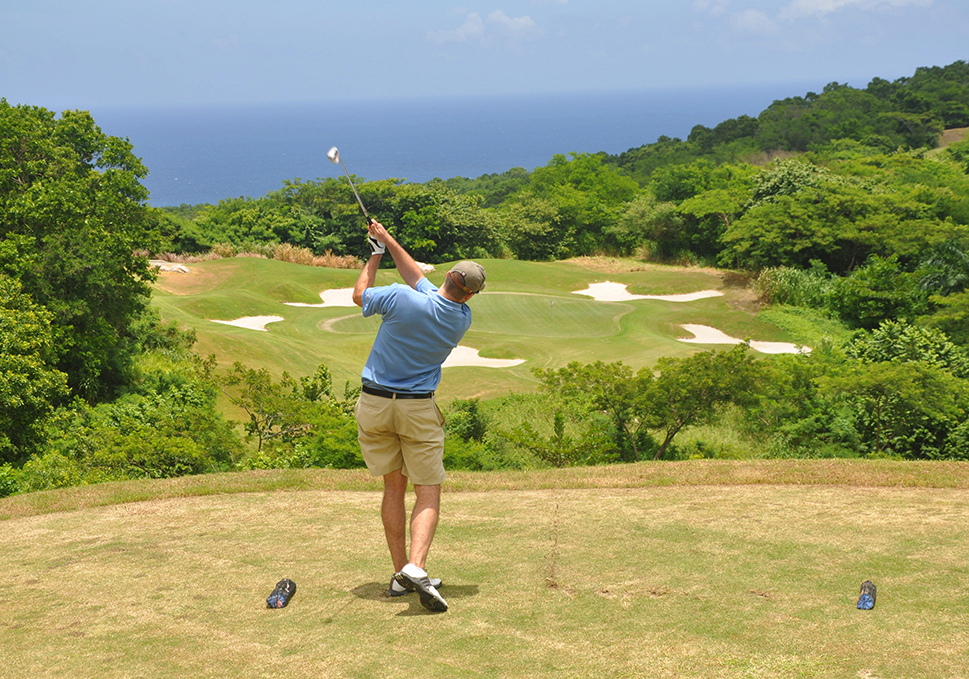
Sports tourism: the fastest growing segment within the travel industry today.
Defining sports tourism.
Broad in its scope, sports tourism is defined as an individual’s travel to a location for the specific purpose of either participating in or viewing a sporting event. Parents who support children who are participating in sporting events can be included in this definition as well. Essentially, sports tourism means different things to a myriad of people. It could be anything from a senior racquetball tournament for retired couples to little Johnny’s travel basketball team flying to Puerto Rico for a select invitational to a weekend getaway in March to see the Royals take on the Padres in Arizona. According to Ohio State University’s College of Food, Agriculture, and Environmental Sciences , which houses their economic development programs, sports tourism can be broken into five categories:
- Sports participation
- Sports events
- Sports training
- Luxury sports tourism
- Tourism with sports content
Whatever sport tourists are traveling for, their presence has become quite lucrative. Youth sports tourism, a subset of sports tourism, is growing at a particularly rapid rate, Wintergreen Research, Inc has valued the youth sports tourism industry at $15.8 billion and has projected it to double in size in the next few years. The economic and cultural impact of youth sports tourism even drew the interest HBO’s Real Sports, who discussed it this recent episode.
Why Sports Tourism is Important
Economic impact.
Sports tourism is one of the fastest growing segments within the travel industry. From weekend tournaments to tailgating at Talladega, this kind of tourism brings hundreds of thousands of visitors to a specific location. And guess what? Those people need to eat, and they need places to stay (probably a good souvenir, too). That means more money to hotels, restaurants, sports facilities , and gift-shops alike. Last year alone, SFM hosted more than 20 million visitors in our sports facilities, many of which were for the purpose of sports tourism. Rocky Top Sports World closed the ‘books’ on their 2017-2018 season and reported a whopping $45.7 million dollars in economic impact – significantly outperforming the original projections.
Placemaking
Sports tourism helps communities throughout the United States establish an identity that can draw visitors who, with time, may become residents. In 2004, the city of Round Rock, Texas launched a campaign to brand themselves as the “sports capital of Texas.” This was done to capitalize on a set of existing sports assets and draw regional and national events and visitors to this city of over 120,000 residents. The city’s branding efforts featured online and offline components and centered around the icon of a folding chair with the Texas flag on it- a nod to an essential item for parents of youth sports athletes.
Today, the Round Rock Sports Center and Round Rock Multipurpose Complex has hosted a myriad of events, including the U.S. Lacrosse Women’s Collegiate National Championship, US Quidditch Cup 11, USA Judo National Championship, and the UIL State Baseball Championship. It’s also the home of the Texas Rangers’ AAA affiliate team, The Round Rock Express and Major League Rugby team, the Austin Herd.
How to Start A Sports Tourism Complex
Starting a new sports tourism complex starts with a vision and quickly moves into understanding the opportunity in the community. If the location, market demand, and other factors are primed, cities of all sizes can take advantage of the economic development benefits generated from sports tourism. Here are a few high-level steps for bringing a sports tourism complex to your city:
- Determine the vision for your complex and define success: What type of complex do you want in your community? Do you want baseball fields? Hockey rinks? A surf park? Are there facilities in place to play these sports? If they exist, are they large enough to host regional or national events? From there, it’s critical to determine what success looks like for your community. For many communities, economic impact is critical. A sports facility needs to bring visitors to their community and generate revenue for local businesses.
- Assess the market: A vision for your sports complex is important, but it’s chances for success must be evaluated closely. A feasibility report provides an analysis of the factors that may impact a proposed facility. This includes an assessment of comparable venues in your market and an analysis of the region’s demographics. This information can help you determine your region’s ability to support a sports complex and inform decisions on the type of facility to pursue. Financial forecasting is critical as well. At Sports Facilities Advisory, we produce a ProForma , which is an institutional grade financial forecast that provides a comprehensive initial picture of all the financial considerations associated with a facility project. Report components include, preliminary construction and start-up cost estimates, a detailed 5-year financial forecast based on options for what a facility may offer, and an economic impact analysis.
- Seek funding and partners: Sports complexes don’t get built without funding. A financial forecast provides a clear picture for banks and other potential funding partners of a project’s ability and timeline for accomplishing its goals. From there, a funding strategy is devised to help identify key funding partners and further define the facility’s business model. Funding presentations are made in this stage in order to reach financial commitments for the project. Beyond financial institutions, partnerships can be built with a variety of entities that can provide financial support and awareness. This includes hospitals, educational institutions, and sports organizations among others.
- Development: Once funding is in place; all phases of facility development can commence. This includes operational tasks such as staff selection and development, facility branding and marketing, bringing in events and sponsors, and most importantly, the construction of the complex. The construction of the facility includes venue planning services . Sports facilities have requirements that stand apart from those of standard facilities. The equipment that is procured and put in place in these facilities must be compliant per the rules of event operators that you are looking to work with.
At Sports Facilities Advisory and Sports Facilities Management, we believe in the power of sports tourism to transform communities. We are with you every step of the way with comprehensive data from sports complexes in over 2,000 communities, the most trusted financial forecast, and expertise in every phase of sports facilities development and management.
Are you ready to learn more about sports tourism and how it can benefit your community? Contact us today or call us at (727) 474-3845 .
Download our free
Sports tourism guide, share this post, latest posts.

How Much Does It Cost To Build an Indoor Sports Complex

The Evolution of Sports Facility Design in 2024: A Focus on Smaller, More Engaging Venues
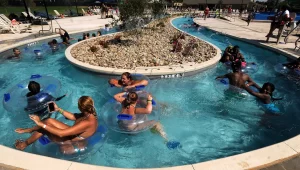
How the Top Aquatics Venues Measure Success

How Much Does It Cost To Build an Outdoor Sports Complex?

(727) 474-3845
17755 US Hwy 19 N. Suite 300 Clearwater, FL 33764
- Facility Planning
- Facility Development
- Facility Management
- Employment Opportunities
- Privacy Policy
Latest News
Ashley whittaker of the sports facilities companies named sports eta’s woman of the year.
- April 11, 2024
Naples Soccer Fans Have the Chance To Be a Part of USL History
- February 22, 2024
Paradise Coast Sports Complex to house USL Naples expansion team
- February 20, 2024
West Monroe Sports & Events Center Celebrates Successful Grand Opening Event
- February 16, 2024
Discover how we can help your community
Gated Content
tourism & city branding
Sport tourism: an ever-growing sector with high potential for cities.
Jul 3, 2021
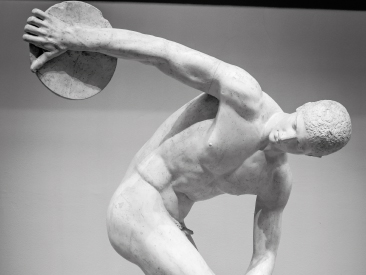
Share this post
By Young Hoon Kim, Ph.D, Professor, Department of Hospitality and Tourism Management University of North Texas, USA, and John Nauright, Ph.D Dean, Richard J. Bolte, Sr. School of Business Mount St. Mary’s University, Maryland, USA
Definition of sport tourism
As defined by Gibson (1998, p. 49), sport tourism is a “leisurebased travel that takes individuals temporarily outside of their home communities to participate and/or watch physical activities or to venerate attractions associated with physical activities”. Human beings are born to travel to fulfil their motivational needs and sports can be one of the reasons and tourism will be one of the ways to satisfy those leisure activities (e.g., trail with family or attending sport events). In theory, it is a naturally generated social phenomenon to satisfy human’s physical and psychological desire through travel or vice versa. Each domain (i.e., sports and tourism) is one of the most significant areas which impact our life from many perspectives, such as social, economy, political, and many more. In particular, Zauhar emphasised (2004, p.13), “the points of contact between sport and tourism have increased dramatically – the mutual benefits for both are quite perceptible and the relationships very compatible. In fact, the term ‘sports tourism’ has been coined to better understand the use of sport as a touristic endeavour”.
The impact of COVID-19 on the sport tourism industry
Unsurprisingly, COVID-19 has significantly impacted both sport and tourism industries. Since its original break in Wuhan, China on 21 December 2019, it led to the world pandemic declared by the World Health Organisation (WHO) on 11 March 2020. There was no way to stop this disaster and its global spread across every continent. Although our life has been getting better after vaccine and some medical treatment, it is still a question to get back to our “new” normal. The impact on global sports tourism and income from events has run into billions of dollars of lost revenue. The impact has been particularly hard for smaller scale events and lower-level leagues that do not have protection from significant television, streaming and advertising revenues. It is the key solution for major sport cities to get back to the “new” normal by recovering from the down-turn stage after being negatively impacted by COVID-19. However, it is a great opportunity for specific sport tourism sectors, such as e-sports and golf industry.
Role of cities in sport tourism
As Kim et al. (2018) pointed out in their research, “a destination brand with strong equity leads to greater commitment in the form of loyalty and willingness to revisit the destination” (p. 1196). Not only for its image developed by sports tourists but also it is critical to prepare the destinations (i.e., cities) for sustainable growth. While sport tourists select and look for a city (i.e., destination) to experience “unique” sport tourism components (e.g., physical activities or sport events), most cities are not primarily designed for sport tourism except some cases (Settimi, 2020). In addition, it is strongly recommended to partnership with educational institutions to maximise the outcomes as well as sustainable development for cities (i.e., destination) (Kim et al., 2018). The specific following suggestions can be emphasised for sport cities:
• Accessibility (e.g., transportation and highway access)
• Basic sports facilities
• Hotel and lodging facilities
• Local government (city) involvement
Sport tourism trends
Hosting of major events (spectators) is still a successful way for cities to develop their sport tourism strategy.
Sport tourism strategy will lead sport cities to the next level by approaching destination as a travel package or products which eventually increase the brand equity of destination. Thus, systematic recovery strategies are keenly needed to prevent from unexpected health-related disasters in the future (e.g., pandemic). In addition, foreseeing framework and business structure will help cities to prepare for next stage.
The development of active sport tourism should be looked at closely
Probably, the 2020 Olympics in Japan will be the best case for cities or city cluster to examine the critical cases how to react and follow up. The given lists below will be considered and discussed:
• Organise a special committee under the IOC to monitor,
• Require pre-examination systems to evaluate the current condition,
• Establish disaster-related control centre,
• Provide the stages and steps to react the outbreaks,
• Follow-up strategies to minimise the damages,
• Assess the post-Olympics, and
• Report and share the results to the public.
While global sport tourism has been damaged in the short term by the COVID-19 pandemic, immediate return of spectators and plans for new events and seasons suggests the upward trends of the latter 2010s will continue by 2022 and into 2023 and beyond. Regional events could become more important, as spectators do not travel as far. Cities and municipalities should consider the appropriate mix of major events and more local and recurrent events.
Kim, Y. H., Li, H., & Nauright, J. (2018). A destination development by building a brand image and sport event tourism: a case of Sport City USA. Sport in Society, 21(8), 1196-1203. Gibson, H. J. (1998). Sport tourism: A critical analysis of research. Sport Management Review, 1, 45-76. Settimi, C. 2020, July 17). America’s best sports cities 2020. Retrieved from https://www.forbes.com/sites/christinasettimi/2020/07/17/ americas-best-sports-cities-2020/?sh=6c36d2bedaef Zauhar, J. (2004). Historical perspectives of sports tourism. Journal of Sport & Tourism, 9(1), 5-101.
To learn more
young hoon kim
john nauright
Related publication
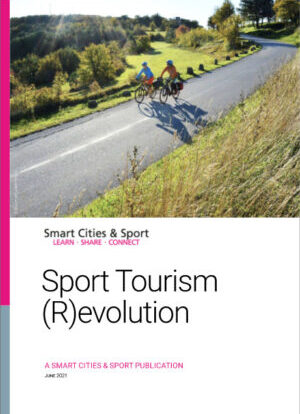
Related articles

Sport Tourism – Aarhus, Denmark
“The mission of VisitAarhus is to develop tourism and promote the Aarhus region as a sustainable destination for holiday and business tourism.”

Interview with Gianpietro Ghedina, Mayor of Cortina d’Ampezzo
“Cortina is lucky to count on two tourist seasons, summer and winter, and sport is definitely the centre of our program.”
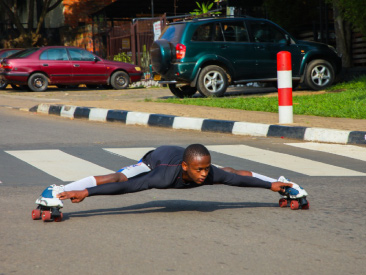
Kigali, Rwanda: Its dual strategic approach to sport tourism
“Hosting events and developing active sport tourism has raised Rwanda’s profile as a sport tourism destination.”
UN Tourism | Bringing the world closer
Share this content.
- Share this article on facebook
- Share this article on twitter
- Share this article on linkedin

World Sports Tourism Congress
- All Regions
25-26 Nov 2021, in Lloret de Mar, Catalonia, Spain

The World Tourism Organization (UNWTO) and the Catalan Tourist Board (Agència Catalana de Turisme) are organizing the World Sports Tourism Congress which will take place from 25-26 November 2021, in Lloret de Mar, Catalonia, Spain.
Sports tourism is one of the fastest growing sectors in tourism. More and more tourists are interested in sport activities during their trips whether sports are the main objective of travel or not. Sport events of various kinds and sizes attract tourists as participants or spectators and destinations try to add local flavors to them to distinguish themselves and provide authentic local experiences. Sports events can be a catalyst for tourism development if successfully leveraged in terms of destination branding, infrastructure development and other economic and social benefits.
Within the framework of the 2030 Agenda for Sustainable Development , this congress seeks to explore the relationship between sports tourism and sustainable and inclusive development and how sports tourism can serve as a tool for tourism dispersal, differentiation and deseasonalization. In line with this, the congress will challenge all participants to further explore these topics and discuss innovation and current and future trends in the sector, as well as successful governance and private sector strategies.
The Congress aims at influencing and inspiring the future development of sports tourism by focusing, among the others, on the following main topics:
- Sports Tourism and its contribution to Sustainable Development Agenda 2030
- Innovation in the development of Sports Tourism: Stadiums, Olympic Games and Mass Outdoor sports
- Successful destination governance and public-private strategies in Sports Tourism
- Sports technologies, eSports and Digital Transformation of Sports Tourism
Please visit the offical webpage of the Congress to access all the information on the Programme, Registration process, and other relevant aspects.
If you have any doubt do not hesitate to contact us at [email protected]
Category tags
Related content, un tourism affiliate members corner: insights into key ..., trends taking shape in the travel industry in 2023, 1st experts meeting on cultural tourism, unwto affiliatee members corner “strategies by tourism ....

Sport Tourism: Benefits, Classification, Types
- Post last modified: 28 August 2021
- Reading time: 34 mins read
- Post category: Tourism
What is Sport Tourism?
Sports tourism is a very significant element in world tourism and has become a highly competitive niche tourism business. As interest and participation in the sport grows within the leisure industry, the desire of people to travel to compete or to spectate has mushroomed.
Table of Content
- 1 What is Sport Tourism?
- 2 Sports Tourist
- 3 Benefits of Sports Tourism
- 4.1 Mega Events
- 4.3 Championships
- 4.4 Tournaments
- 4.5 Training Camps
- 4.6 Development Courses
- 4.7 Conferences
- 4.9 Cause Related
- 4.10 Media Events
- 4.11 Spectator Events
- 4.12 Created Sport Events
- 5.1 Sightseeing Sports Tour
- 5.2 Competitive Sports Tour
- 5.3 Holiday Sports Tour
- 5.4 Healthy and Recreational Sports Tour
- 5.5 Extreme and Adventure Sports Tour
- 6.1 Integrity of Demanding in Sports Tourism
- 6.2 Sensitivity of Demanding in Sports Tourism
- 6.3 Directivity of Demanding in Sports Tourism
- 6.4 High Elasticity of Demanding in Sports Tourism
- 6.5 Variability of Demanding in Sports Tourism
- 6.6 Seasonality of Demanding in Sports Tourism
- 6.7 Dependency of Demanding in Sports Tourism
- 7.1 Commonwealth Games 2010
- 7.2 Cricket World Cup Mania
Sports Tourist
Within the sport tourism industry, we can identify many people who are sport tourists. We can distinguish them by activity, demographic group, the characteristics of their sport, and by their performance level.
Sport tourists can be either participants or spectators. Different events have different ratios of one to the other The demographics of the sport and event also determine the number of people involved and their spending preferences and patterns:
Culture and Ethnicity
Sports and Tourism
While we often think of adult-oriented sports events, there are a great number of sport participants who are children and youth. Any youth tournament has parents in attendance as they are needed to drive, but they are also there to support their kids.
For the parents of many young athletes, following the team becomes a year-round travel and tourism activity.
Many sports have tournaments for both men and women, and indeed the fastest growing segments of some traditionally male sports, like soccer, hockey, and rugby, are for women. Research also shows that parents more often travel with their teenage girls to tournaments than their teenage boys.
As we move on to look at the relative value of different events to a community, the income levels of participants will be of importance. While no hard data exists, we know that the income levels of golfers are higher than, say, lawn bowlers, while alpine/downhill skiers spend more than cross-country skiers.
Sport crosses all cultures. Prince Rupert is the host of an annual First Nations Basketball tournament. A Kabaddi tournament will draw great crowds if marketed to the South Asian communities who understand it.
And one of the largest soccer tournaments in the Lower Mainland is organized by the Filipino community which draws teams from across North America, every second year. The nature of the sport itself will also determine the number and characteristics of its sport tourists.
The largest events tend to be for mass participation individual events such as marathons, triathlons, and cross-country ski lop pets; or for team tournaments with lots of teams such as hockey, soccer, and softball.
Less popular sports, where the contest is individual, have smaller tournaments: fencing, boxing, or wrestling, for example. Performance level influences the number and nature of the sport tourists involved. A high-performance baseball tournament will have fewer teams involved than a minor ball or a recreational softball tournament.
Sports tourism brings together sport and tourism. While these two sectors of our society and economy have different natures, values, and organizational structures, they offer tremendous partnering opportunities.
Benefits of Sports Tourism
A focus on sports tourism and sports events can bring economic value, social benefits, and civic pride to the community. Some of these benefits occur at the time of the event, but most are legacies and will return value to the community over many years.
Economic value can be generated and increased in many ways:
- Recognizing the value that existing tournaments bring to the community.
- Identifying the community’s sport strengths and expanding the number and size of existing events.
- Identifying the events that create the greatest economic value, such as masters sport, and focusing on those events.
- Providing more leisure opportunities so that family members are encouraged to come with participants, and everyone is encouraged to ‘stay an extra day’ Valuing volunteers, but working smarter to convert volunteer jobs into paid employment.
- Linking with corporations that have an interest in the demographics of the sport event. Social benefits of sport tourism are closely linked with the social benefits of recreation and sport.
These benefits can be leveraged as follows:
- Volunteering keeps people connected, and connected people are usually healthier.
- A focus on events will encourage participation, especially for young people, but also for adults.
- Sport and events offer ways of bringing people together from many different regions, and everyone learns from these experiences Sport tourism is “green” economic development, and offers opportunities to re-invigorate depressed parts of an urban area.
- Event revenues can be reinvested in community facilities and programs.
- Economic development – Tourism-related revenue is normally the largest portion of the economic impact of an event. This includes accommodation, food and beverage, and other spending. Direct event revenues include admission fees, sponsorships, on-site sales and, for the largest events, television rights.
- Social and Community Legacies: Including youth development, increased fitness levels and health, community, and cultural celebration. Sport links cultures and countries.
- Hosting international sport tournamnts is not only good for tourism but also good for cultural relations, our place in the world, and positive community change. Sporting events can also be designed to be environmentally and socially sustainable.
Classification of Sports Tourism
Let’s discuss the classification of sports tourism:
Mega Events
Championships, tournaments, training camps, development courses, conferences, cause related, media events, spectator events, created sport events.
Very large and high profile games and events, including at the apex, the Olympic and Paralympics Games can yield billions of dollars worth of media coverage, prestige, and economic impact for the host, but require a significant capital investment.
Games are multi-sport events – These can be very large due to the number of sports being hosted at one location at the same time. These can be directed by governments or by separate organizations, e.g., the International Olympic Committee.
Relatively few events are games, although their size makes them attractive targets. Hosting games often requires a wide range of suitable venues, as many sports featured are ‘mandatory’, and given their size, experience hosting major events and breadth of sports events may be advantageous.
These are single-sport properties with rights held by the respective sports organization, where a championship tournament is often the culmination of a season’s sport activity. These are often referred to as ‘the provincials’ or ‘the nationals’.
Many championships are arranged by school and university/college sports associations.
Tournaments are another type of event, usually for a single sport. Whereas a championship is “owned” by a sport governing body, tournaments can be the initiative of any organization choosing to initiate them.
Many are arranged by local sports organizations, but they may also be sponsored by a school, church or temple, or a pub, for example.
They are generally held in the same place at the same time every year and can become a familiar part of the sport’s and a community’s annual calendar. Tournaments may be competitive but are often as much participation and recreation-focused as results-oriented.
Championships, tournaments, and games are often competitive events, but competition follows athlete development and training. National or provincial teams with athletes living in different cities are brought together on regular schedules to train and work together with each other and with coaches.
In addition to such training arranged by technical directors of governing bodies and high-performance teams, training camps may be more individual. Commercial summer hockey camps may offer additional training for youth players, and these can be packaged as part of a vacation for the whole family.
Such camps may take advantage of good facilities during the offseason when their capacity for special events may be greater Most sports have regular training camps at the provincial and national level.
The location of training camps is dependent on services and facilities available, costs, the location of the coach, and the number of athletes in a particular community.
Sport organizations train athletes, coaches and officials of all levels. While many of these courses happen locally, especially for entry-level, courses for higher performance athletes and coaches may involve travel and overnight stays. ‘Out of town’ coaches may travel to a larger centre for such a course, or an instructor may travel to another area to train local coaches.
Sports organizations arrange many meetings and conferences, sometimes in conjunction with major events. Trade shows or exhibitions may be involved with such meetings. In addition to the immediate tourism benefit, these can also be opportunities to introduce decision-makers to facilities and future hosting opportunities in the community.
The selection of a community for a conference is often connected to where the sporting event is taking place or where the sport’s leadership resides.
Very much part of sport tourism, professional sports teams tend to primarily serve a local market with spectator entertainment. They also bring visiting teams to town, but this is balanced by their nights spent on away games.
While visiting team fans may accompany their team’s visit from their home town, these are generally limited in numbers, apart from major events.
Professional sports may have more impact in attracting visitors from smaller markets without a franchise to the larger community, similar to arts and culture events attracting visitors to a major city for concerts or museum exhibitions.
Sports-related events may be very useful tourism opportunities, even though sports competition or sports development are not their prime purposes. The categories following may overlap with the above classification and with each other.
Sports events may be designed primarily to promote a charity or to raise money for a specific cause. but this category is for events where charity is a primary purpose, often accompanied by participant enjoyment and entertainment.
A few events are created mainly for broadcast audiences and derive their main income from broadcasting rights. Examples would include boxing events, the X-Games, or ‘Skins’ golf. Although spectators will be present, this category is designed to appeal to TV audiences.
They can also have a positive influence on a destination’s awareness and image as a sports destination, depending on the size of the audience.
For example, awareness of the quality of golf courses, the scenery, or other attractions of an area could be communicated to a wide golf tourism target audience through two days of TV coverage.
Sports tourism involves tourists watching events as much as it does playing in them. Professional sports are driven by spectator revenue and media broadcasting rights, and the sponsor interest is thus generated, with very few participants.
These events are very similar to major music concerts, and maybe ‘sport-based entertainment’ Such spectator events are only potential tourism activities if they attract visitors who stay overnight or travel from over 80 kilometers.
The tourism potential is for out-of-town visitors to travel to the city from nearby communities to watch a specific spectator event, as they may for a regular professional sports team league game.
Many events in this section can fall into a general category of ‘created events’. In addition to events held for other purposes, a sporting event may be created by a community, facility, or corporation primarily for commercial or tourism purposes.
A large venue or facility may find it has a quiet period, or it regularly has unused capacity at one time of the year and might create an invitational sports tournament to fill that capacity or arrange with a promoter to stage a sports event or a hockey club to hold an off-season training camp.
Types of Sports Tourism
Based on the concept and attributes of sports tourism, combined with its practice, the types of sports tourism can be divided into six kinds in the standard of their characteristics:
Sightseeing Sports Tour
Competitive sports tour, holiday sports tour, healthy and recreational sports tour, extreme and adventure sports tour.
The sightseeing sports tour is a process of experiencing various distinctive sports cultures, in which tourists leave far away from their places of usual residence to enjoy physical exercises, sports buildings, stadiums, sports artistic scenery spots in an audiovisual way.
Here sports cultures refer to the cultures comprising all the activities relative to sports, and it has the widest meaning of sports beauty. There are two brief reasons why the sightseeing sports tour is different from common sightseeing tours.
The first reason is the main purpose of the sightseeing sports tour is to gain the aesthetic experiences associable with sports. A sport sightseeing is a way for tourists to feel sports beauty. Not the mundane pleasure do tourists pursue, but sports aesthetic through this way.
The second reason is the diverse subjects of the sightseeing sports tour.
The competitive sports tour is a trip with the main aim of joining in some sports competition. The tourists include athletes, coaches, sports audiences (sports fans), media staff, and other working personnel closely relating to some sports competition.
All the different tourists go along from miles around to the sports fields and stay for a period of time to take part in, watch or interview some certain sports competition.
The holiday sports tour is a trip with the purpose of relief, adjustment, decompression, recreation, and distraction, for which tourists spend a particular holiday on activities involving sports.
The holiday sports tour usually couples with specific sports in a tourist destination or traditional sports of peoples, so it has typical favor of folklore. The biggest specialty of the holiday sports tour is that just in one holiday or vacation tourists anticipate sports.
The healthy and recreational sports tour is mainly for amusement and diversion, bodybuilding, kinetic recuperation, and rehabilitation. During the tour, tourists participate in different kinds of healthful exercise and obtain relaxation, relief, and a good mood.
Keeping fitness, the definite subject of the entertaining activity is the biggest characteristic of the healthy and recreational sports tour.
But this kind of healthful exercise differs from the traditional exercise, because it inclines towards the idea of keeping healthy from amusement, and that’s why tourists choose this type of sports tour.
The extreme and adventure sports tour is a challenge that human beings rise to their own physiological and psychological extreme limits. People would like to involve in such tours is not only to conquer the natural barrier but also to win and surpass themselves.
This kind of sport is very demanding and somewhat risky, so people with no professional knowledge and training are not apt to get engaged in it. That’s why it is called minority sports.
But such sports activities have already got much attention; some of the sports items, therefore, have been simplified and given Corresponding safe securities, for instance, the artificial rock-climbing walls and cleared rivers for drifting.
More and more people can become its participants. The extreme and adventure sports have four usual items:
- Rock-Climbing: Thrills and stimulus is its feature. It can meet people’s desires of challenging nature and themselves when returning to nature and seeking stimulation, meanwhile, it can help people to enjoy the triumph and great pleasure after achieving their climbing.
- Drifting: Sailing a rubber raft or other boat with no motive power, governing its direction through the paddle, and drifting down by turns turbulent and gentle rivers, to perform a stunning moment against nature.
- Adverse Current Rafting: It’s an exploratory expedition overcoming various topographical hindrances when up a canyon river or stream as far as its beginning. Perfect cooperation among companions is needed to accomplish this arduous trip, so adverse-current rafting is a sports of teamwork.
- Exploration: The vital energy and magic of an exploratory tour lies in its spirit of battling to conquer hardships and wresting from nature her secrets. China stretches across a vast area and owns incommensurable geomorphic types of diversity and typicality, which provides abundant sources for exploratory traveling.
Characteristics of Sports Tourism Market
The characteristics of the sports tourism market essentially are the features of demand in the sports tourism market. To be specific, the features of demanding in sports tourism market are the following:
Integrity of Demanding in Sports Tourism
Sensitivity of demanding in sports tourism, directivity of demanding in sports tourism, high elasticity of demanding in sports tourism, variability of demanding in sports tourism, seasonality of demanding in sports tourism, dependency of demanding in sports tourism.
The integrity of the demand in sports tourism mostly refers to the completeness that sports tourists require from sports tourism products and services. The integrity of the demand in sports tourism is embodied in the multiplicity of the demands during the process of a sports tour.
They are basic physiological needs, safety needs, and high-level needs of enjoyment, development, and self-fulfillment. So sports tourism is expected to provide complex products to the tourists in order to satisfy their manifold demands during the traveling.
The integrity of the demand in sports tourism calls for that the provider of sports traveling products effectively combine their various products and service, or reasonably arrange the time and places to guarantee the overall requirement in the process of a sports tour.
The demand in sports tourism is quite delicate to the changes in the social, political situation, as well as traveling fad in destinations.
If a sports traveling destination has no stable society or is suffered from natural disasters, there’s no doubt that the demand in sports tourism will decrease; no matter how low the prices of its sports traveling products are, there’s no big attraction to sports tourists.
Two different meanings are included. First, sports tourists must leave their residences for the traveling destinations to meet their own needs of sports tours, which is to say, sports consumers need to go to a specific region for their demands of sports traveling.
It can be elaborated in two ways. On one hand, the demand for sports tourism is a comparatively higher level need, which is on the basis of the requirement of essential living conditions. When people’s income has a raise in proportion, the demand for sports tourism can go up in a large proportion.
The big matches with strong admiration often alter the flow of the tourists of sightseeing sports tour to different destinations as the host cities and regions shift. For example, Olympic Games and World Cup are held every four years, but the host cities and areas differ every four years.
Such great sports are obliged to attract a great amount of sports tourists and form the huge flow of sports tourist resource to increase sharply the reception. Next Olympic Games and World Cup will attract the tourists’ flow to another city and area, causing its reception too.
Variability of the demand in sports tourism indicates the unbalance of area distribution when the sightseeing sports tourists transfer along with the variation of the host cities or regions of large-scaled sports matches.
As a consequence, the men’s times received at a certain time differ between host cities or regions and non-host cities or regions.
Seasonality of the demand in sports tourism means the unbalance of seasonal distribution. For some resorts, traveling men times accepted in a year largely correlate with the shift of seasons. Accordingly, there are the distinctions of booming season, normal season, and slack season in sports tourism.
The primary reason for the disparity is the seasonal variation of sports traveling resources. The seasonality of the sports resources is decided by the latitudes, geographic features and positions, and climates, so the conditions or circumstances of doing sports are changing with the season.
The demands of sports tourism are concentrated in large quantities in specific seasons or times instead of being averagely distributed in each month in a year.
This kind of dependency represents its reliance in all comprehensive supplying circumstances.
It lies on sports traveling environment and facilities, on the natural, geographic, and weather conditions, on sports traveling products’ peculiarity and appeal, service quality, and prices, on transportation, communication, hotels, and the like infrastructures, on the improvement of the society and communities in destinations, and on the recognition of the values between homogeneous cultures and heterogeneous cultures as well.
All these reasons cause that most demands and supply concentrate in some special countries and regions, and in some particular period of time.
Sports Tourism in India
A holiday with friends or family to witness a mega sporting event is no longer an alien concept for Indian travelers.
The number of travelers keens on a ringside seat to cheer for the ‘men in blue at the upcoming ICC Cricket World Cup 2011 in India, Sri Lanka, and Bangladesh or their favorite team during T20 tournament or driver in a formula one race is rapidly growing.
And these sporting enthusiasts are willing to spend ‘top dollar’ to jet-set across the globe to experience the thrill of watching their favorite game live. These fans also like to ‘live it up’ exploring and enjoying the destination simultaneously.
Correspondingly, there has also been a marked rise in the number of tour operators and agents specializing in servicing the requirements of this particular segment. It’s not only niche specialists, but also big mainstream tour operators who set up a separate division to tap the potential of Sports Tourism.
While Sports Tourism in India is primarily outbound, there are small inroads also being made on the inbound and domestic front. Overall, according to industry experts, the segment is expected to have a growth rate of 10-20 percent in the coming years.
Sports Tourism has diversified from its conventional form restricted to viewing the sport live, to be clubbed with MICE or leisure trips. Hence, delegates from the corporate world are often witnessed weaving their conventions and business sessions with various sporting events.
The present scenario has further evolved itself to include families accompanying delegates and fans to the sporting event. They consider the event as an incentive to visit and explore the destination wherein they indulge in shopping and other leisure activities.
Commonwealth Games 2010
With innumerable infrastructure disasters and last-minute hiccups, the Commonwealth Games 2010 in New Delhi turned out to be a politically turbulent event. Many major travel agencies and tour companies in the country also decided to play it safe and backed out from promoting the Games.
However, the Games played a vital role in creating a major chunk of long-overdue infrastructure in the capital and also showcasing ‘Incredible India’ to the world. The opening ceremony was a spectacular melange of our diversity and culture.
The Games went off without a hitch and gave great exposure to the country. As per information from the Immigration authorities at Delhi’s Indira Gandhi International Airport Foreign Tourist Arrivals (FTAs) from October 1-14, 2010 (Commonwealth Games period) stood at 75,606.
Also, according to industry feedback, FTAs to India in October 2010, saw a rise by 9.2 percent (about 4.87 lakh tourists), as compared to the same period last year.
Cricket World Cup Mania
While the 2010 Commonwealth Games fever has barely left India, the country is all set to co-host another important sporting event of relatively greater popularity: the ICC Cricket World Cup (CWC) 2011, to be held from February 17 to April 2, 2011.
As the cricket mania gathers momentum in the country with a massive cricket craze, most travel agents and tour operators in India seem to be making the best of the opportunity by designing packages around the tournament to change the outlook of Sports Tourism.
Which is still a niche trend in the country. The response has so far been good that most travel and tour operators foresee a shortage of tickets due to increasing demands from fans. An increasing number of requests to block dates during the CWC have come from groups of NRIs and families as well.
Tour operators are forming larger groups to make bulk reservations so as to sell packages at economic rates. As it is obvious, the result is that demands are higher for Indian matches. “Some of the travelers, especially from middle and high-end segments, are taking the tournament as an incentive to explore the country.
Please Share This Share this content
- Opens in a new window X
- Opens in a new window Facebook
- Opens in a new window Pinterest
- Opens in a new window LinkedIn
- Opens in a new window Reddit
- Opens in a new window WhatsApp
You Might Also Like
Rural tourism: types, benefits, challenges, growth, destination management, tourist places to visit in jaisalmer (2024), tourist places to visit in gulmarg (2024), destination branding, tourist places to visit in tamil nadu (2024), leave a reply cancel reply.
Save my name, email, and website in this browser for the next time I comment.

Unleashing The Power of Events!
Sport Tourism Canada is an organization founded through a partnership with the Destination Canada (formerly the Canadian Tourism Commission) with the goal to increase Canada’s capacity to attract and host sport tourism events.
We help increase Canada’s capacity to attract and host sport tourism events.
Latest News

Sport Events Congress 2025/2026 Expression of Interest
Apr 22, 2024 | Announcements , Industry News , Press Release
We are excited to launch our bid process to select the host cities for Sport Events Congress in 2025 and 2026. Prospective hosts are asked to complete an Expression of Interest (EOI) by 11:59pm EST on Wednesday, May 1st. Full RFPs will then be distributed to those...
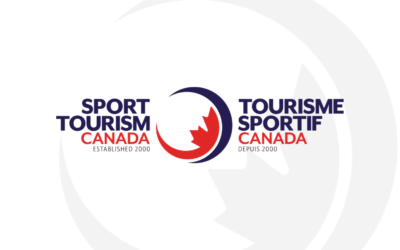
Sport Tourism Canada 2024-25 Board of Directors Announced
Apr 17, 2024 | Announcements , Industry News , Press Release
During Sport Tourism Canada's 2024 Annual General Meeting (AGM), which was held in Winnipeg, MB on March 13, the 2024-25 Board of Directors was installed. STC is pleased to announce the appointment of the following Directors: Allyson Tonelli, BPE Hospitality - Chair...

The Best in Canada’s Sport Tourism Industry Honoured at SEC24
Mar 21, 2024 | Announcements , Events , Industry News , Press Release
The very best in Canada’s Sport Tourism Industry were honoured during the 2024 PRESTIGE Awards ceremony held on March 15th at the RBC Convention Centre Winnipeg. Nine recipients across eight award categories were recognized. The PRESTIGE (Program Recognizing...
Services We Offer
Gain access to exclusive offerings and other public offerings at discounted rates: directories, Canadian and International industry data, the Sport Hosting Index, and cooperative marketing programs and sales missions.
Consulting Services
High-level training and strategic advice for organizations or staff needing assistance on either a short-term or long-term basis.
ECONOMIC IMPACT ANALYSIS
Assessments that provide critical information for municipal, provincial, and federal government funding applications, grants, and all types of private sector financial support.
We Organize These Events

Can you imagine competing in the championship game surrounded by mountains and lakes in one of Canada’s top travel destinations? Named Canada’s number 1 mid-size city for sport hosting in 2019 and 2020, Kelowna is a vibrant city renowned for its welcoming hospitality, stunning landscape, and first-rate sporting venues.

Grande Prairie
Grande Prairie is a region of choice to host high–caliber sport, recreation, and cultural events. With world–class facilities, major airline and public transportation services, more than 3,000 hotel rooms, and plenty of dining and shopping, Grande Prairie is a premier destination for many events.
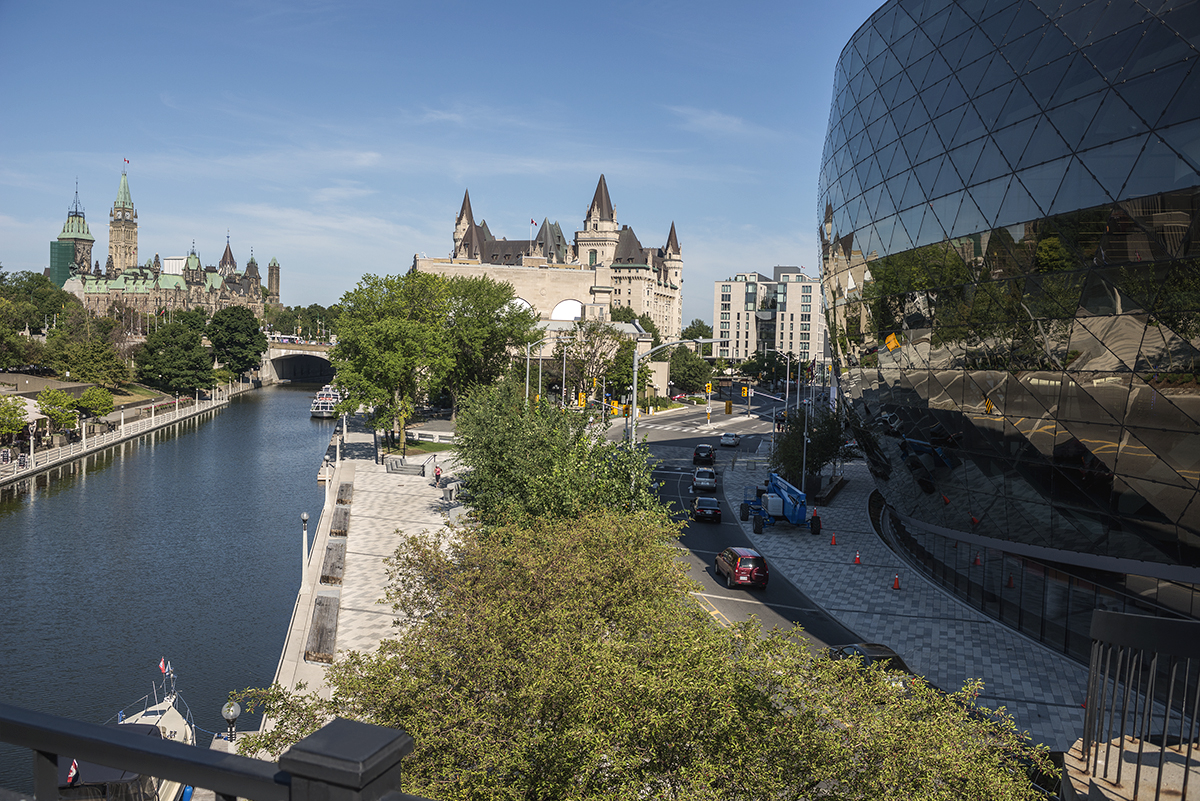
O ttawa is one of the world’s great est capital cities, fully equipped with a wide range of facilities and perfectly positioned to stage provincial, national and international events , making it an excellent host of sporting events . In 2017, Ottawa was named Destination of the Year by Sport Tourism Canada .
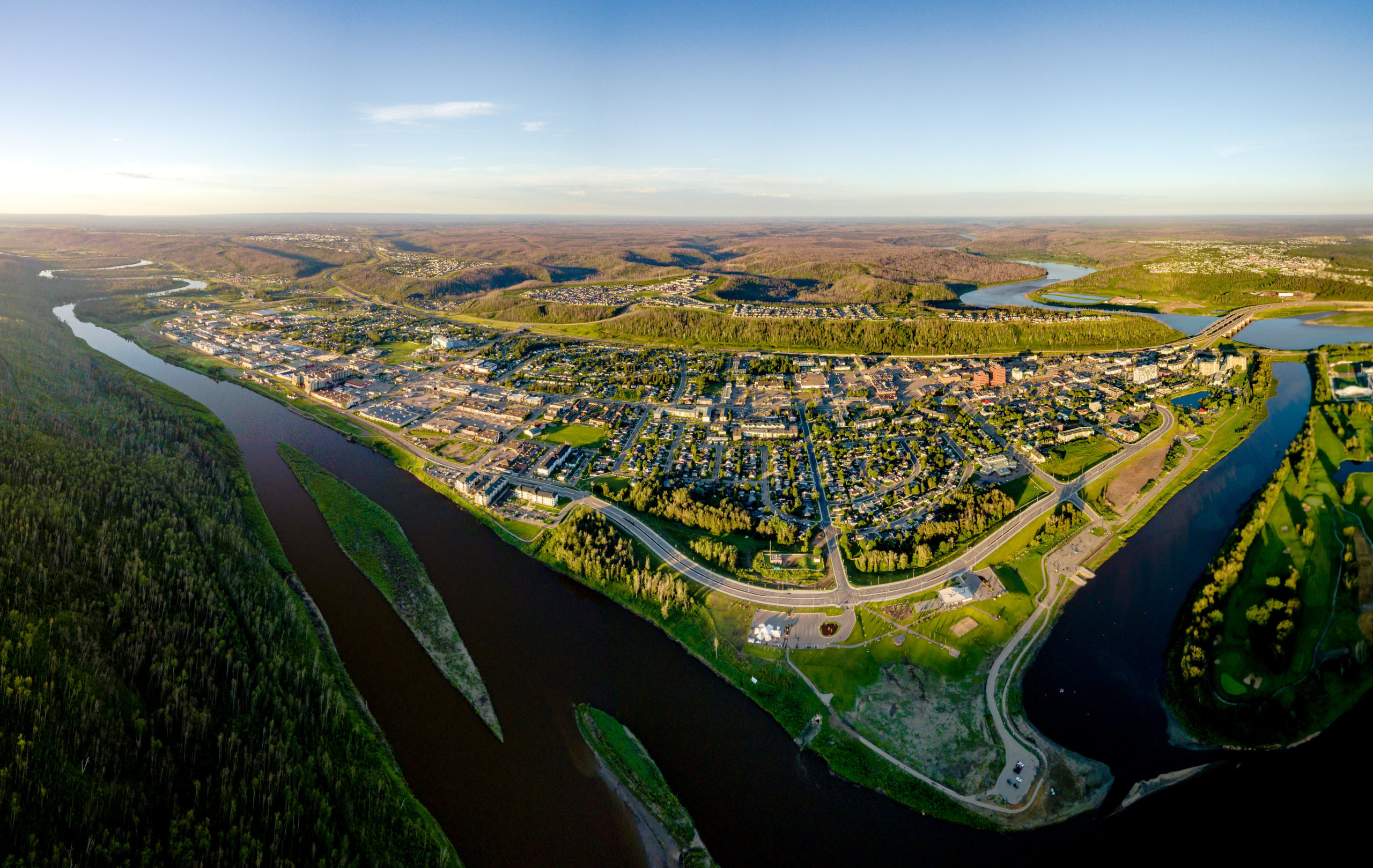
FORT MCMURRAY WOOD BUFFALO
Fort McMurray Wood Buffalo has hosted some big events here over the years, from multi-sport games to national & provincial championships and international showcase sporting events.
Testimonials From Our Members

CHERYL FINN
Sport tourism london.
We have several memberships with national and provincial organizations, but our affiliation with STC is by far the most valuable on a year over year basis.
DEAN MCINTOSH
Hockey canada.
We met with four or five communities that we’ve never been in before at Sport Events Congress. They bid on an event over the next couple of years, and before you know it, we’re in that community hosting a major event.

MEMBER CATEGORIES AND FEES
Municipal member.
A public or private organization in a community, municipality or metropolitan area in Canada that is organized to solicit and service sports events (e.g. Convention & visitors bureaus, sport tourism commissions, economic development commissions)
Population under 25,000 CDN $600 Population 25,000 – 50,000 CDN $1,000 Population 50,000 – 150,000 CDN $2,000 Population 150,000 – 500,000 CDN $3,000 Population Over 500,000 CDN $5,000
Associate Member
Canadian provincial or federal sport and/or tourism umbrella bodies (e.g. Provincial ministries of tourism, Sport Nova Scotia, Tourism Industry Association of Ontario, Travel Alberta, Convention Centres Canada). It also includes sport leagues that operate on a provincial, regional or national level.
FEES: CDN $2,000
Affiliate Member
This category of membership includes Canadian firms or individuals providing equipment, services or attractions to the field served by the organization (e.ga. Sport/event marketing companies, sports equipment manufacturers, consulting firms, architectural firms, facilities, institutions, athletic departments, hotel chains & individual hotel properties, airline and car rental chains). It also includes organizations that hold rights to events not covered under the Rights Holders category below.
FEES: CDN $1,000
This membership category is open to those actively involved in the Canadian education system as an educator, researcher or student.
FEES: CDN $500
Rights Holder - National
This non-voting membership category includes national, multi-sport or major games organizations that are recognized as clients of Sport Canada.
FEES: CDN $400
Rights Holder - Provincial
This non-voting membership category includes provincial and multi-sport organizations that are recognized by provincial governments and provincial sport umbrella bodies that are Associate members of the STC.
FEES: CDN $150
International
This category provides an opportunity for international members to affiliate with the CSTA and includes access to all industry tools contained in the Products section of the website. Contact the CSTA for a full list of other benefits.
Cities, States or Provinces – USD $5000 Countries USD $10,000
- Skip to main content
- Keyboard shortcuts for audio player
Alabama holds its first ever U.S. Olympic trial for a sport that's little-known there

Rolando Arrieta

Evy Leibfarth navigates a slalom course at Montgomery Whitewater Park in Alabama. She won an Olympic trial there and punched her ticket to the Paris games this summer. Montgomery Whitewater Park hide caption
Evy Leibfarth navigates a slalom course at Montgomery Whitewater Park in Alabama. She won an Olympic trial there and punched her ticket to the Paris games this summer.
MONTGOMERY, Ala. — Tammy Sterling had plans to go out of town this past weekend. Instead, she stayed home to attend an athletic event she'd never seen before.
"I am actually watching the Olympic trials, and I'm going to see somebody that I watched today at the Paris Olympics in 2024. It's just amazing. I love it," Sterling said.
The U.S. Olympic Team trials for canoe and kayak slalom were held Saturday and Sunday at Montgomery Whitewater, a new artificial watersports complex near downtown Montgomery. Hundreds of curious Alabamians turned out for the event.
Cindy Riggins was intrigued by the caliber of athletes who had traveled to her hometown for this competition.
"It looks like a fun sport. Looks very tiring — you have to definitely be in shape," she said.
In canoe and kayak slalom, athletes race against the clock navigating through a series of red and green gates hanging above raging rapids. Points are deducted if they touch or miss any of the gates. Coaches, teammates, friends and parents ran alongside the course, encouraging and cheering the racer down to the finish line.
"They chant: up up up!" said kayaker Nik Nijhawan. "That's because the red gates are also called up gates so it's our own variation of, go go go," Nijhawan said.
Nijhawan, 16, is from Colorado and said he does not expect to make the Olympic team this year — "but sometime in the next 10 years it would be amazing."

At the U.S. Olympic trials in Montgomery, Evy Leibfarth wins a spot to represent USA in women's canoe slalom for the 2024 Paris Olympics this summer. Rolando Arrieta/NPR hide caption
At the U.S. Olympic trials in Montgomery, Evy Leibfarth wins a spot to represent USA in women's canoe slalom for the 2024 Paris Olympics this summer.
Evy Leibfarth, 20, from Bryson City, N.C., had the fastest time in both kayak and canoe slalom events and was the only athlete among the nearly 70 who competed in Montgomery to secure an Olympic spot in the women's canoe slalom. The remaining spots for Team USA will be determined in Oklahoma City in two weeks.
"This weekend has been amazing for me. I'm really proud of my racing this weekend. Overall it's been great, emotional and so much fun." said Leibfarth, who'll be competing in her second Olympics after finishing outside the top 10 in two events in Tokyo in 2020.

World Athletics will pay $50,000 to Olympic gold medalists in track and field events
"It's been a dream of mine to go to Paris for a really long time and I'm really stoked to make that a reality," Leibfarth added.
Boosting the city's athletic profile
Local leaders hope an Olympic-sanctioned event like this will help the Montgomery economy and put the city on the map as a sports tourism destination.
Mayor Steven L. Reed said that hosting the U.S. Olympic trials speaks to "a pivot we want to make, to make sure that sports tourism is also a big part of what's happening here."

I'm Really Into
Whitewater kayaking might not be for the faint of heart, but rapids are my sanctuary.
He said he sees a kayaking and canoeing competition of this level as a way to break down racial, economic and social barriers, particularly among kids. "Maybe they can be the first one from Montgomery or maybe one of the first ones from Alabama to bring home a medal" in these events, the mayor said.
Montgomery Whitewater was built by the county for about $90 million and opened in July. It's the third artificial whitewater park in U.S. cities, joining facilities in Oklahoma City and Charlotte. It's part of a broader shift in the sport, with almost all high-level competitions now held on artificial courses.
Three-time kayak slalom Olympian Scott Shipley, who is now a mechanical engineer, designed all three whitewater parks.
"It was something I wanted to bring to America," Shipley said. "It's a whole recreational thing where it's not just that 1%, but also church groups and school groups and family and friends coming out to enjoy whitewater where they are."

Fans watch Evy Leibfarth compete in Olympic trials at Montgomery Whitewater Park. This is the Alabama facility's first year in operation. Montgomery Whitewater Park hide caption
Fans watch Evy Leibfarth compete in Olympic trials at Montgomery Whitewater Park. This is the Alabama facility's first year in operation.
Bringing broader visibility to paddle sports
Jedediah Hinkley, competition director for the American Canoe Association, made a half-dozen trips to the venue to make sure it was ready for the Olympic trials. He said his group and Montgomery share a goal of "creating access to a sport that a lot of people around here have not historically had access to."
Even with the new venue, not everyone in Montgomery is ready to pick up a paddle. Nick Riggins, who watched the events with his sister Cindy, said that when he first heard about the city investing in a whitewater park near downtown he "thought it was a hoax."
" It's interesting to watch to see how they maneuver with the kayaks and all that other kind of stuff, but not anything that I would want to do," Riggins said. "There's a lot of water moving real fast and I don't want to do that."
Still, he said, he was glad the facility was open.
View prices for your travel dates
See why so many travelers make Sport their small hotel of choice when visiting Balashikha. Providing an ideal mix of value, comfort and convenience, it offers an array of amenities designed for travelers like you.
Given the close proximity of popular landmarks, such as Temple of St. Vladimir (0.3 mi) and Temple of Pochayevskaya Icon of Our Lady (0.8 mi), guests of Sport can easily experience some of Balashikha's most well known attractions.
Guest rooms offer a flat screen TV, a refrigerator, and air conditioning, and Sport makes getting online easy as free wifi is available.
You can also take advantage of some of the amenities offered by the small hotel, including a 24 hour front desk. In addition, guests can enjoy a pool and a lounge during their visit. As an added convenience, there is paid private parking available on-site.
Travelers looking for cafes can head to Arka Coffee Shop, Bulka s Myasom, or Coffee and Waffles.
During your visit, be sure to check out popular attractions like Balashikha Park (0.5 mi), Homestead Gorenki (0.9 mi), and Palace Pekhra-Yakovlevskoe (0.9 mi), which are all within walking distance of the small hotel.
At Sport, your comfort and satisfaction come first, and they look forward to welcoming you to Balashikha.
- Excellent 0
- Very Good 0
- English ( 0 )
Own or manage this property? Claim your listing for free to respond to reviews, update your profile and much more.

Shapiro Administration Opens Application Period for Sports Marketing and Tourism Program Grants
- April 22, 2024
Pennsylvania is a world-class destination, with the most passionate and dedicated fanbase in the world – and Governor Josh Shapiro’s Administration is working hard to attract more marquee sporting events to the Commonwealth to drive tourism and economic growth.
SMAT has helped bring nationally known sporting events to Pennsylvania – including the 2026 World Cup, the 2025 United States Men’s Open, the 2024 United States Women’s Open, and more.
Harrisburg, PA – Today, Department of Community and Economic Development (DCED) Secretary Rick Siger announced that the application period for grants through DCED’s Sports Marketing and Tourism Program (SMAT) opened this morning, April 22 at 9:00AM EST. The application period will close on June 30 at 4:00PM EST.
The Sports Marketing and Tourism Program was created to attract high-quality, amateur, and professional sporting and e-sports events to Pennsylvania. The goal of the investment in the program is to capitalize on the influx of tourism that comes with hosting a major national or international event, which can increase sales to both large and small businesses in the surrounding area and in turn boost the regional economy, as well as improve the quality of life for residents.
“This is an exciting time for Pennsylvania as we prepare to host a number of incredibly exciting events in the coming years, including the 2026 World Cup, the 2024 USGA Women’s Open, and the 2025 USGA Men’s Open,” said Secretary Siger. “SMAT is helping to bring major events like these to the Commonwealth, providing a huge boost to our economy. With the new application period opening up, we look forward to supporting even more major sporting events here in the coming years.”
Eligible program applicants include a municipality, a local authority, a nonprofit organization, or a legal entity that meets all of the following criteria:
- The applicant participates or plans to participate in a competitive selection process;
- The site selection process is conducted by a Site Selection Organization not located in Pennsylvania; and
- The applicant is seeking to secure a single year or multiyear commitment from a site selection organization to conduct high quality, amateur and professional sporting or esports events at one or more locations in Pennsylvania.
Last September, DCED announced the previous round of SMAT grant approvals , with $5 million in grant funding awarded. Recipients included Philadelphia Soccer for the 2026 World Cup in Philadelphia, the United States Golf Association (USGA) for the 2025 United States Men’s Open in Oakmont, and the 2024 United States Women’s Open in Lancaster.
Applicants can use DCED’s Electronic Single Application (ESA) to apply. For full program guidelines, visit the Sports Marketing and Tourism website .
For more information about the Department of Community and Economic Development, visit DCED website , and be sure to stay up-to-date with all of our agency news on Facebook , X , and LinkedIn .
MEDIA CONTACT: Penny Ickes, [email protected]
- DCED Funding tourism

Virginia Gazette News | Visit Williamsburg hire will promote sports…
Share this:.
- Click to share on Facebook (Opens in new window)
- Click to share on X (Opens in new window)

- Virginia Gazette Public Notices
- Gazette E-paper
Virginia Gazette
Virginia gazette news, subscriber only, virginia gazette news | visit williamsburg hire will promote sports tourism in historic triangle.

The CEO and head coach of Williamsburg-area swim club 757swim is moving to Visit Williamsburg to focus on bringing tourism events to the Historic Triangle.
Morgan Cordle will start on May 15 as the sports sales manager, and she will aim to create and bring sporting tournaments to Williamsburg.
“I’m thrilled to bring my passion for sports tourism to Visit Williamsburg,” Cordle said. “Although leaving 757swim is bittersweet, this new role offers an incredible chance to make a broader impact in the Williamsburg area.”
Visit Williamsburg, the marketing organization for Williamsburg, Jamestown and Yorktown, said Cordle understands the importance of attracting sporting events to the region and the economic impact events have on the local community.
“Her experience positions her to effectively advocate for and participate in initiatives promoting sports tourism in Williamsburg,” the group said.
Cordle’s hiring comes as plans for a regional indoor sports complex continue to move forward. Last year, Williamsburg, James City County and York County leaders approved a funding agreement to build and operate the nearly $80 million facility. The plan review process for the sports facility is ongoing .
Visit Williamsburg says Williamsburg is uniquely positioned to foster sports tourism, citing the city’s rich historical heritage and housing of modern amenities. “Visit Williamsburg has always recognized the value of sports tourism,” spokeswoman Selena Coles said when asked if the sports complex has resulted in an increased push.
The city of Williamsburg has championed the idea of selling the Historic Triangle as a destination for sports tourism since 2014.
Amy Cory, 757swim’s associate head coach, will take over as head coach, according to Shannon Hartig, president of the board of directors. Cordle’s last day with 757swim will be May 6.
Cordle was the founding CEO and head coach, and Hartig said she brought the organization from a group of 30 athletes operating out of the Williamsburg Community Pool to having 300 athletes and an aquatic center. The board will look at the CEO position to see whether it needs to be broken up into multiple positions as the organization has grown.
“She’s done amazing things,” Hartig said. “It’s been a privilege to work with her, and I know she’ll do amazing things for Visit Williamsburg.”
Sam Schaffer, [email protected]
More in Virginia Gazette News

Virginia Gazette News | State grant will allow study of Indigenous oyster culture in Gloucester County

Virginia Gazette News | Sentara Williamsburg hospital’s lobby, gift shop getting makeovers

Virginia Gazette News | William & Mary to raise tuition for second year in a row

Virginia Gazette News | Seasonal art exhibit at Williamsburg Winery in its final weeks
Trending nationally.
- A woman had a hysterectomy. She claims her co-workers harassed her about a ‘sex change’
- 20 least-affordable US cities to buy a home are all in California
- High school athletic director used AI to fake racist recording of principal, police say
- Disneyland adds another potential themed land to the mix: Encanto
- Barbra Streisand drops first new song in 6 years in response to rise in antisemitism
2018 Primetime Emmy & James Beard Award Winner
R&K Insider
Join our newsletter to get exclusives on where our correspondents travel, what they eat, where they stay. Free to sign up.
A History of Moscow in 13 Dishes
Featured city guides.
We've detected unusual activity from your computer network
To continue, please click the box below to let us know you're not a robot.
Why did this happen?
Please make sure your browser supports JavaScript and cookies and that you are not blocking them from loading. For more information you can review our Terms of Service and Cookie Policy .
For inquiries related to this message please contact our support team and provide the reference ID below.

IMAGES
VIDEO
COMMENTS
Learn what sports tourism is, how it relates to sporting activity, event and attraction, and why it is so big. Explore the different types of sports tourism, such as sport event tourism, nostalgia sports tourism, active sports tourism and passive sports tourism, with examples and statistics.
Sports tourism refers to travel which involves either observing or participating in a sporting event while staying apart from the tourists' usual environment. Sport tourism is a fast-growing sector of the global travel industry and equates to $7.68 billion.
Learn what sports tourism is, why it matters and how it can contribute to sustainable development and mega events. Explore UNWTO publications, events and resources on sports tourism in various regions and contexts.
Here we look at what sports tourism is and an expert's view on its impact… The United Nations's definition What UN Tourism said about sports tourism: " Sports tourism is a fundamental axis, generating around 10% of the world's expenditure on tourism. It has an estimated growth rate of 17.5% between 2023-2030, moving masses intra and ...
Sports tourism is a large part of the tourism industry, with some sources claiming that a quarter of all tourism in the world is sports-related. Sports tourism can also help achieve social and development objectives, such as poverty reduction, economic growth, health promotion and accessibility. Learn more about the importance of sports tourism and its sustainable development impact.
Sports tourism is the act of travelling for the sake of either participating or viewing sports, and the management and marketing of sports to attract tourism for commercial means. Learn about different types of sports tourism, such as active, event and nostalgia, and how it can have an impact on various stakeholders in sports and tourism.
The association's last research report, "2019 State of the Sports Tourism Industry Report in America presented by the Sports Events and Tourism Association in partnership with the Northstar Meetings Group" was released in 2020 to benchmark 2019, and concluded that U.S. sports-related travelers, event organizers and venues spent a total of ...
Sports tourism is a common term now, but it was largely unheard of until around 12 years ago. Sports tourism is a massive industry, and one of the fastest growing sectors in tourism according to the United World Tourism Agency.According to the Sports Events and Tourism Association (SETA), sports tourism generated over $90 billion dollars in economic impact across the U.S. in 2021.
But the pandemic affected sports tourism and all of international travel, and at the close of 2021, international tourist arrivals were still 1 billion below pre-pandemic numbers. In 2022, people ...
Renowned experts and academics in sports tourism debated over two days on current and future trends in the sector and underlined the key role of sport for the development of a more sustainable and inclusive tourism. The first edition of the World Sports Tourism Congress (25-26 November, Lloret de Mar, Spain) focused on the unique capacity of ...
Spectator sport tourism allows fans to experience the electrifying atmosphere of live sports while being immersed in the culture and excitement of the host destination. Active Sport Tourism: Active sport tourism is for those who prefer to participate in sports-related activities themselves. It offers opportunities to engage in physical ...
Sports tourism: the fastest growing segment within the travel industry today. Defining Sports Tourism. Broad in its scope, sports tourism is defined as an individual's travel to a location for the specific purpose of either participating in or viewing a sporting event. Parents who support children who are participating in sporting events can ...
Sports tourism generated $14.6 billion in tax revenues in 2019, with $6.8 billion accruing to state and local governments. Employment Generator A total of 739,386 jobs were sustained by sports tourism in 2019. This included 410,762 direct and 328,624 indirect and induced jobs. KEY FINDINGS The sports tourism sector is a driver of the U.S. economy
The Journal of Sport & Tourism (JS&T) aims to publish research that makes a clear contribution, substantively, theoretically or methodologically, to the body of knowledge relating to all aspects of the relationship between sport and tourism.. Seeking to be the first port of call for research into the relationship between sport and tourism, JS&T welcomes submissions from all relevant subject ...
Definition of sport tourism. As defined by Gibson (1998, p. 49), sport tourism is a "leisurebased travel that takes individuals temporarily outside of their home communities to participate and/or watch physical activities or to venerate attractions associated with physical activities". Human beings are born to travel to fulfil their ...
The World Tourism Organization (UNWTO) and the Catalan Tourist Board (Agència Catalana de Turisme) are organizing the World Sports Tourism Congress which will take place from 25-26 November 2021, in Lloret de Mar, Catalonia, Spain. Sports tourism is one of the fastest growing sectors in tourism. More and more tourists are interested in sport ...
Sport tourism is a fast-growing segment of tourism offering new perspectives and supporting travelers' behavior shift towards active living that is a boost for sustainable destinations. These interrelations between active living, active travelling, and sport tourism have a powerful environmental, economic, and social impact. Based on the recognized contribution of sport tourism in sustaining ...
Sports tourism is an independent and socially-oriented field, and a lifestyle that is shared by a considerable percentage of so-ciety. It is an effective means of furthering the spiritual and
What is Sport Tourism? Sports tourism is a very significant element in world tourism and has become a highly competitive niche tourism business. As interest and participation in the sport grows within the leisure industry, the desire of people to travel to compete or to spectate has mushroomed.
"The sport tourism industry continued to grow in 2023, increasing by 7% over sports traveler volume in 2022," John David, president and CEO of Sports ETA, said in a release. "The number of ...
ottawa. Ottawa is one of the world's greatest capital cities, fully equipped with a wide range of facilities and perfectly positioned to stage provincial, national and international events, making it an excellent host of sporting events. In 2017, Ottawa was named Destination of the Year by Sport Tourism Canada. READ MORE.
The U.S. Olympic Team trials for slalom kayak and canoe were held at Montgomery Whitewater, a new artificial watersports complex. The city hopes to draw more tourism, while the sport seeks new fans.
1 review. #3 of 4 small hotels in Balashikha. Location. 4.0. Service. 3.0. See why so many travelers make Sport their small hotel of choice when visiting Balashikha. Providing an ideal mix of value, comfort and convenience, it offers an array of amenities designed for travelers like you. Given the close proximity of popular landmarks, such as ...
The Sports Marketing and Tourism Program was created to attract high-quality, amateur, and professional sporting and e-sports events to Pennsylvania. The goal of the investment in the program is to capitalize on the influx of tourism that comes with hosting a major national or international event, which can increase sales to both large and ...
He said: "The Tusker Lite Mt Rwenzori Marathon is important to tourism because it is a massive public relations event. This is because tourism runs on activations and events. First, it promotes ...
The CEO and head coach of Williamsburg-area swim club 757swim is moving to Visit Williamsburg to focus on bringing tourism events to the Historic Triangle. Morgan Cordle will start on May 15 as ...
In addition to our standard services, Grand Russia offers tours packages to Moscow and St Petersburg. You cannot resist our Two Hearts of Russia (7 Days &6 Nights), Golden Moscow (4 Days &3 Nights), Sochi (3 Days & 2 Nights), Golden Ring (1 Day & 2 Days), and many more. As a leading travel agency specializing in the tour to Russia and Former ...
"Small businesses are really what makes a destination captivating," the School of Sport, Tourism and Hospitality Management (STHM) alumna says. "A lot of these small businesses don't have marketing experience or may not speak English for that matter. So what really stood out to me with AI was the opportunity to level the playing field."
1: Off-kilter genius at Delicatessen: Brain pâté with kefir butter and young radishes served mezze-style, and the caviar and tartare pizza. Head for Food City. You might think that calling Food City (Фуд Сити), an agriculture depot on the outskirts of Moscow, a "city" would be some kind of hyperbole. It is not.
Listen. 1:41. Thailand's cabinet approved a plan to allow Russian tourists who enter the country without a visa to stay for a maximum of two months as the Southeast Asian country bets on tourism ...